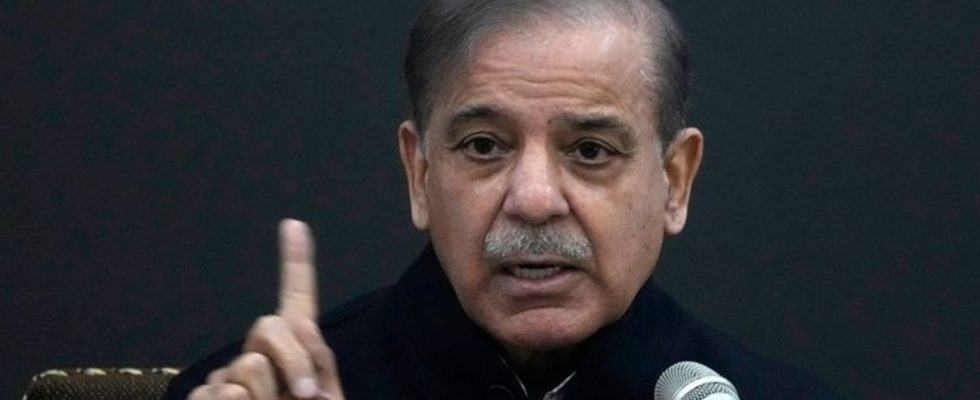Choose
Pakistan is about to form a government with Sharif
Former Pakistan Prime Minister Shehbaz Sharif is expected to lead the new coalition government. photo
© KM Chaudary/AP/dpa
The election in Pakistan was overshadowed by internet blocks and allegations of manipulation. Now the future balance of power in the country with around 240 million inhabitants appears to have been clarified.
In the nuclear-armed South Asian state, the future balance of power appears to have been clarified after the election on February 8th. In the election, completely unexpectedly, candidates registered as independents, most of whom belong to the opposition party PTI, won the most seats among the various camps. The Muslim League PML-N surprisingly only came second in the vote, followed by the PPP, which made forming a government difficult.
The election in the country with around 240 million inhabitants was overshadowed by internet blocks and allegations of manipulation. Observers criticized the judiciary’s harsh approach against the opposition party PTI, which was only allowed to run with independent candidates following a Supreme Court decision.
Since Pakistan’s independence over 75 years ago as a result of the partition of British India, there have been repeated unrest and instability in the country. The military ruled for more than half of this time. Even among civilian governments, generals were seen as the force that could determine the success or failure of the political leadership.

